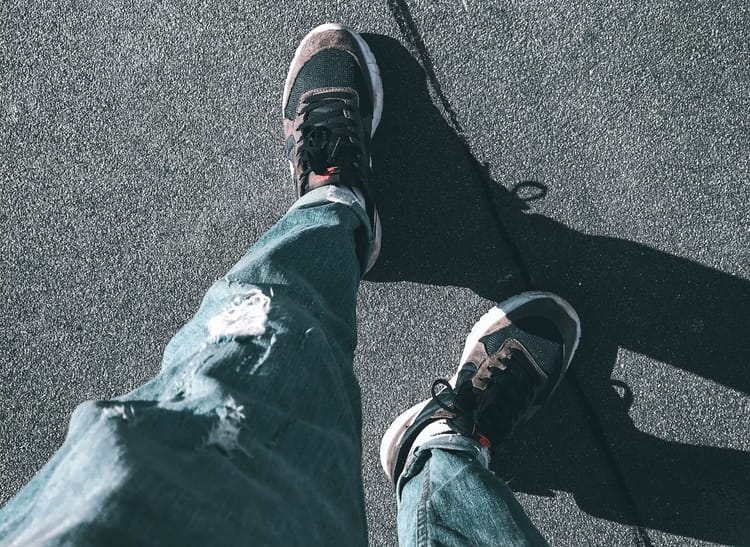Ending a Friendship With a Rapist

The media often focuses on two relationships in sexual assault cases: the victim and the perpetrator. In xoJane, Denver writer Lindsay King-Miller went a step further to share how she discovered that a longtime friend was also a rapist (She broke off contact after she learned about the crime). She talked about the experience and aftermath with NO MORE.
NO MORE: Why did you decide to write your story?
Lindsay King-Miller: It took me about a year to work up to writing about it, but it was on my mind for a long time and writing is part of how I process emotionally difficult things. I kept thinking about how, when I found out what my friend had done, I didn’t know where to turn or who to ask for advice. It’s not something that anyone ever mentions to you: ”If someone you’re friends with commits sexual assault, here’s how you should respond…”
The way we talk about sexual assault in our culture makes it really difficult to address that situation, because rapists are depicted as either faceless monsters with no redeeming characteristics—someone you’d never be friends with in the first place—or misunderstood “nice guys” who didn’t really do anything wrong.
There’s no road map for “he’s a person I really like who has done something I can’t forgive.” I wanted to offer other people in that situation one approach to thinking about it and dealing with it, even if it’s not the approach they would take.
I think we need more conversation about how people who aren’t sexual assault survivors can push back against rape culture, because that’s a responsibility all of us share.
NM: What were the responses to your story, and did any surprise you?
LKM: I try not to read comments on my own writing because I take it really personally. I skimmed the comments on xoJane, and I think responded to a couple, but I didn’t read them in depth. They were mostly supportive to the extent that I read them. I saw a few that were like, “You’re so brave” or whatever, which I’m definitely not. I’m sad that rape culture is so entrenched that we see believing a rape survivor and not remaining friends with her attacker as an act of bravery.
I’m sad that rape culture is so entrenched that we see believing a rape survivor and not remaining friends with her attacker as an act of bravery.
NM: Would you ever reach out to your friend again, and under what circumstances?
LKM: I don’t know. I don’t think so. Maybe if I heard that he was taking major steps like admitting to the crime he committed and seeking counseling. We still have some people in common, so it’s possible that that would find its way back to me. But I doubt it will ever happen, even if he does work to be accountable and make amends, which I hope he does. I think the trust between us is probably gone for good. That’s sad, but it’s certainly not the saddest part of the situation.
NM: How are you sure he’s guilty?
LKM: That’s not a question I’m willing to answer. The details of the assault and how I heard about it are the survivor’s story to share, not mine. I will say more generally that in the absence of strong evidence to the contrary, my default setting is “believe the survivor.” If someone says she has been sexually assaulted, I think the right thing to do is believe her (I’m saying “she,” but that goes for survivors of any gender). False accusations of rape are rare. If you always side with the survivor you’ll be right most of the time, and the risk of being wrong is one I can live with. I would rather err on the side of believing the accuser than on the side of believing the rapist. I am not a court of law; I do not have the obligation to believe someone innocent until proved guilty.
No one ever has the obligation to discuss their trauma with you.
NM: What advice would you give to other people who find out that they’re friends with a perpetrator?
LKM: Listen. Think. Don’t reject the accusation out of hand. Don’t say, “Well, he’s never assaulted me, so I don’t buy it.” Don’t defend the perpetrator. If you choose to remain friends with him, that’s valid, but don’t claim that it’s “not taking sides.” Don’t insist that the survivor offer you proof before you’ll believe them. No one ever has the obligation to discuss their trauma with you. I think it’s OK to remain friends with a perpetrator and invest in their rehabilitation, but you need to understand that that may make the survivor and survivor’s friends feel unsafe around you or need to distance from you, and that’s their right.
NM: Do you believe that a perpetrator can change or reform?
LKM: I do, I think. I don’t think our culture is really set up to accommodate that, unfortunately. We do punishment more than rehabilitation. But I think that learning and growing has to include accepting the consequences of your mistakes, and that can mean losing people. I don’t think anyone has a responsibility to forgive, even if a perpetrator reforms. Growth has to be for its own sake. I believe it’s possible, but honestly, I can’t think of any real-life examples.
For more information about bystander intervention, visit the National Sexual Violence Resource Center.
Together We Can End Domestic and Sexual Violence






